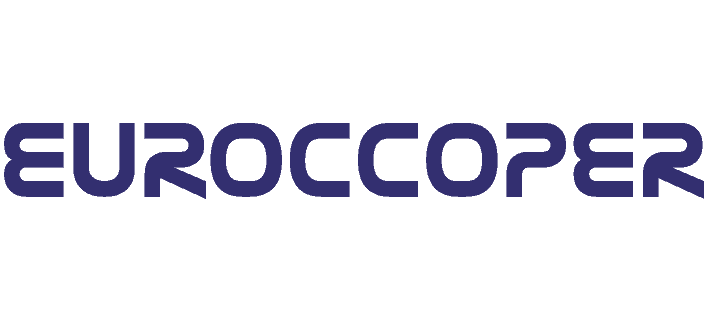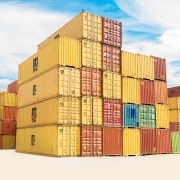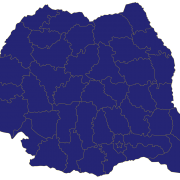1. What is an EORI number?
The EORI number is a unique number in the European Union, which the customs authorities or other authorities designated by the Member States assign to economic operators and other interested persons for its use.
2. The purpose of introducing the EORI number
The purpose of introducing the EORI number is to assign a registration and identification number to each economic operator and, where appropriate, to other persons, to serve as their common reference in their relations with the customs authorities, as well as for the exchange of information between customs and other authorities.
3. Who is required to obtain the EORI number?
The persons who are required to request an EORI number are the following:
– economic operators (persons who, within their professional activities, carry out activities regulated by customs legislation, such as import, export, transit, storage, representation operations, as well as operations prior to the arrival / departure of goods entering / leaving the territory of the community);
– persons, other than economic operators, who introduce / remove goods into / from the European Union.
4. Where do the people established in EU request the assigning of an EORI number?
Economic operators and other interested parties shall request the assignment of an EORI number to the competent authorities of the Member State in which they are established.
5. Where do the persons established in a third country request the assignment of an EORI number?
If an economic operator who is not established in the customs territory of the Union does not have an EORI number, it must be registered by the designated authority of the Member State in which it carries out one of the following activities for the first time:
a) files a customs form in the customs territory of the Union, except for the following forms:
– a customs form prepared in accordance with Articles 135 to 144 of Delegated Regulation (EU) 2015/2446 of 28 July 2015 supplementing the (EU)Regulation no 952/2013 of the European Parliament and of the Council of 9 October 2013 establishing the Union Customs Code;
– a customs form to place goods under the temporary admission procedure or a re-export form to terminate this procedure;
– a customs form according to the Convention on a common transit procedure submitted by an economic operator established in a common transit country;
– a customs form for placing the goods under the Union transit procedure submitted by an economic operator established in Andorra or San Marino.
b) it files a brief form for exit or entry into the customs territory of the Union.
c) it files a form for temporary storage in the customs territory of the Union.
d) it acts as a carrier for the purpose of sea, river or air transport.
e) it act as a carrier who is connected to the customs system and who wishes to receive any of the notifications specified in the customs legislation regarding the submission or modification of entry brief forms.
6. The procedure for assigning EORI numbers in Romania
In Romania, the competent authority for the registration and assignment of EORI numbers is the General Directorate of Customs. The EORI numbers will be requested from the regional customs directorates within whose territorial jurisdiction their headquarter is located / where they are established or, in exceptional cases, at the border customs offices.
In order to assign the EORI number, the requesting person has the obligation to submit an application for registration.
The economic operators established in Romania will submit copies of the following documents to the regional customs directorate in order to support the request:
a) the registration certificate issued by the National Office of the Trade Register;
b) the registration certificate for VAT purposes issued by the Ministry of Public Finance, as the case may be;
c) documents in which the address of the current registered office or the tax residence is specified, as the case may be, if it does not correspond to the one registered in the submitted certificate(s);
d) the article of incorporation of the economic operator, with the subsequent modifications and completions, as the case may be.
The persons, other than the economic operators, who are established in Romania, will submit for the support of the request, to the regional customs directorate, copies of the following documents:
a) the registration documents issued by the authorities that are competent in this respect;
b) the registration certificate for VAT purposes issued by the Ministry of Public Finance, as the case may be;
c) the documents in which the address of the current registered office or the tax residence is specified, as the case may be, if it does not correspond to the one registered in the documents mentioned at let. a) and b);
d) the identity card, in the case of natural persons.
Persons not established in the EU area will submit, in support of the application, copies of the following documents, to the regional customs directorate:
a) the registration document issued by the competent authority of the third country, in photocopy;
b) the VAT registration certificate(s) issued by the competent authority of the Member States of the European Union, as appropriate;
c) documents in which the address of the current registered office or the tax residence is specified, as the case may be, if it does not correspond to the one registered in the documents mentioned at letters a) and b), issued by the responsible authorities within the trade register or by the chambers of commerce from the European Union or from the third country, as original documents or certified copies, at most 6 months before the date of submission of the application;
d) a photocopy of the valid passport or other travel document, in the case of natural persons.
The economic operators who are not established in the EU, but who are holders of TIR carnets shall submit copies of the following documents to the border customs office through which the goods are introduced or removed on / from the Union customs territory:
– photocopy of the cover of the TIR carnet with the stamp containing the identification data of the TIR carnet holder;
– photocopy of the driver’s passport.
The requests for assigning EORI number may be:
– filled in, signed and sent directly by the requesting economic operator;
– filled in and submitted by the economic operator’s representative, but signed by the requesting economic operator. In this case, the representation contract shall be attached to the request, without being necessary for it to contain the statement that the representative is authorized by the economic operator to submit for it the request for assigning the EORI number;
– filled in, signed and sent by the representative of the requesting economic operator.
After verifying the documents, the regional customs directorates / border customs offices will issue a notification of assignment of the EORI number to the applicants.
Once the EORI number has been assigned, economic operators and other persons are required to use that unique number in all their communications with the customs authorities of the member states.
7. The structure of the EORI number in Romania
In Romania, it has been established that the unique national number used in the structure of the EORI number, in the case of legal entities, should be the unique identification code (CUI). Depending on the type of person, the EORI number assigned by the Romanian customs authority will have the following form:
– for the legal person based in Romania: RO + CUI (tax identification code);
– for the legal person based in a third country: RO + ISO alpha 2 country code of the third country + identification number assigned by the competent institution of the concerned third state;
– for associations of persons based in Romania: RO + CUI (tax identification code);
– for associations of persons based in a third country: RO + ISO alpha 2 country code + identification number assigned by the competent institution of the concerned third country;
– for the natural person established in Romania: RO + personal identification number;
– for the natural person established in a third country: RO + ISO alpha 2 country code of the third country + identification number assigned by the competent institution of the concerned third country.






